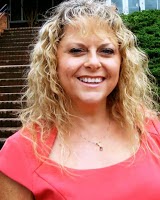You’ve put your life on hold for a weekend, a week, or even longer. You’ve attended a fabulous writers’ conference, and you’ve come home with a load of books, handouts, and scribbled notes. You’ve made dozens of new best friends who actually get you, who understand that it’s okay to have morning coffee with the voices in your head. You’ve found your tribe, and you’re inspired to write, write, write!
And then there’s the laundry. And the grocery shopping. And the kids and pets. And the day job.
How will you ever maintain the momentum and apply the advice you garnered at The World’s Greatest Writers’ Event, when you have to face the real world?
Here’s a list of sure-fire ways to keep that exciting energy flowing from your mind to your manuscript. Let me know how they work for you!
1. Sleep. Yes, this sounds counterproductive. However, chances are good that you rose early, stayed up late, and have jet lag or are road weary. You’ve also been away from your family and friends, and if you want their support throughout your writing career (you’ll need it!) then you must revive and reconnect. Twenty-four hours of R & R won’t sideline your journey to the bestseller list. In fact, once your brain is rested, you’ll be more productive, and since you’ve caught up with all that’s happened in your family’s life, you’ll feel good about shutting the door to your home office while you get some serious writing done.
2. Sort. All those notes, handouts, and manuscript suggestions need an organized home. If you don’t have a folder for handouts, make one now. If you have several handouts, consider sorting them by topic: characterization, plotting, publishing advice, and so on. Hopefully you thought ahead and took a notebook with you, so all your snippets of advice are in one handy place. If not, transcribe the best notes into a notebook or onto index cards, so you’ll have them at your fingertips when you revise your work. Then gather all the business cards and contact lists you’ve received, and set them aside. (We’ll get to those later.) Lastly, if you’ve been lucky enough to attend a conference with a workshop, sort all the critiqued copies of your manuscript by page number (all page ones in one stack, page twos in another stack, etc.). Then, when you revise your manuscript, you can work through one page at a time on your computer, applying what you wish to use in your story, then discard the rest.
3. Write. Yes, you have a stack of signed books you can’t wait to read. Yes, you still have laundry to do. But before you do any of those things, take fifteen minutes (or two hours, if you’ve got it) and write! Tell yourself that this is a requirement for your conference. Use a prompt from a class that you didn’t have time to work on during the event. Or go ahead and begin tackling those revisions to your story.
Sometimes we return home intimidated by the amount of work we think we need to do in order to make our manuscripts publishable. The truth is, however, that unless you start working on your writing, those manuscripts will remain unpublishable! Start where you are right now. Don’t worry: if you mess up, your computer has a delete key.
4. Say “Thank you!” That perfect snippet of advice you received about transitioning from one scene to another? The recommendation a published writer made to his editor? The handout that you plan to post on your bulletin board as a roadmap to finish your novel? Say thanks! Pull out those business cards you collected, and drop a handwritten thank-you note in the mail. Don’t have a street address? Send a thoughtful, personalized email thanking the presenter or mentor who shined a light on your writing path.
5. Connect. While you have those business cards, presenter list, and workshop critique schedule in hand, update your social media accounts. Add to your Facebook friends list, follow your new connections on Twitter, and update your Instagram. Be sure to follow the blogs of your favorite presenters, authors, and new friends. If you’ve become especially good friends with a few of your fellow attendees, ask them to return the favor and follow your blog, as well.
6. Read. Finally! You’ve caught up on the business end of writing, so before you nod off to sleep, grab a book from the stack you’ve brought home from your conference. When you’ve finished each novel or book, be sure to review it in at least two or three places, such as on Amazon, Goodreads, or Facebook. Better still, write a formal review and submit it to a literary magazine or newspaper. If it’s accepted for publication, you’ll have yet another byline for your bio!
7. Now, back to work! While we’d love to get lost in reading the great works of our peers and researching details for our stories, our job—first and foremost—is writing. Build off the momentum you gained at the conference. Remind yourself that another conference awaits you in a few months, or next year, and you’ll want to have a polished manuscript to present when that time arrives. If an agent or editor has asked to see your work, be sure to have it professionally proofread or edited (Inspiration For Writers, Inc. can help with that!), and send it out as soon as you can. Include a note reminding the agent that she requested your manuscript at XYZ Writers’ Conference. Then, once it’s out the door, get back to work! It’s time to start your next story!



